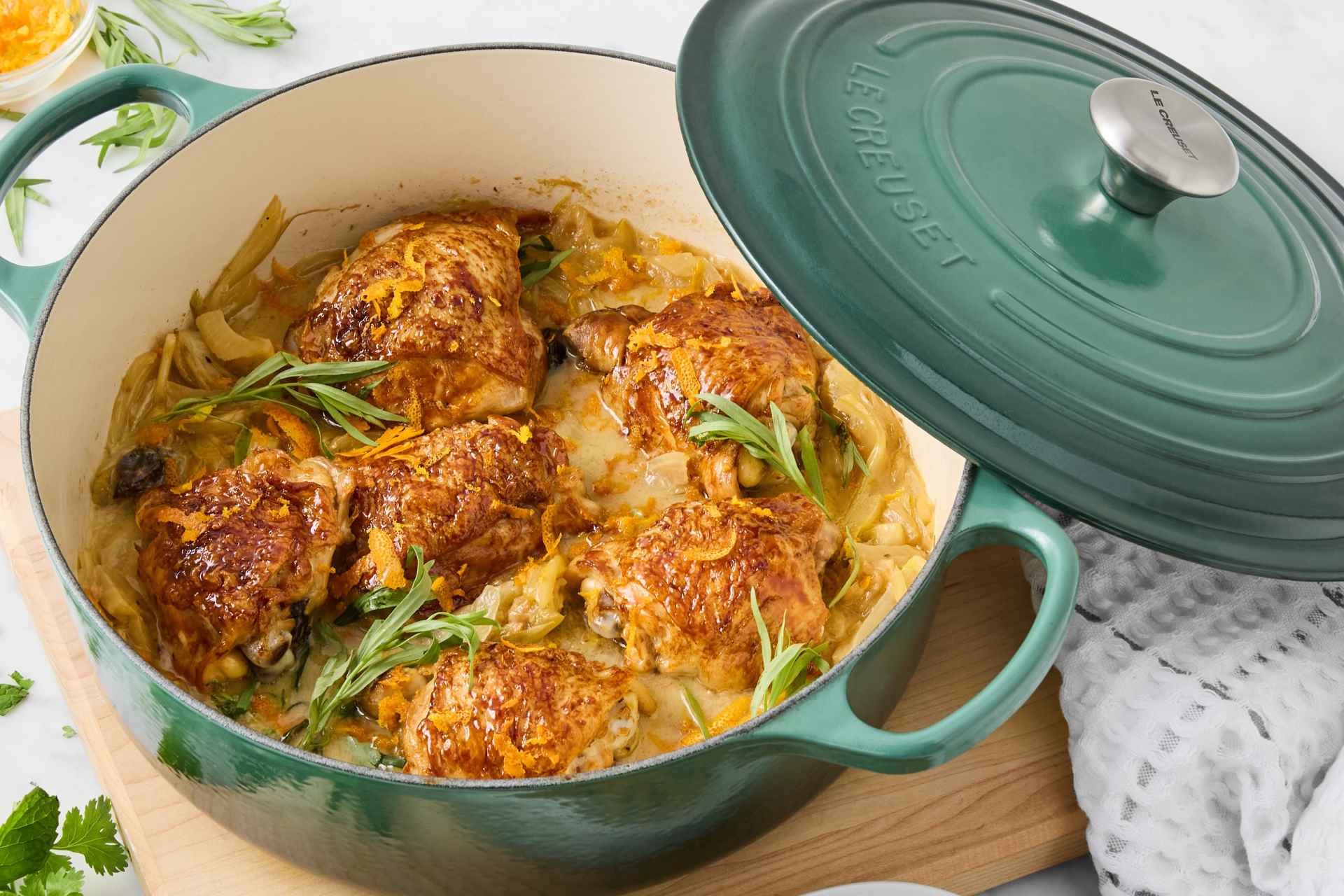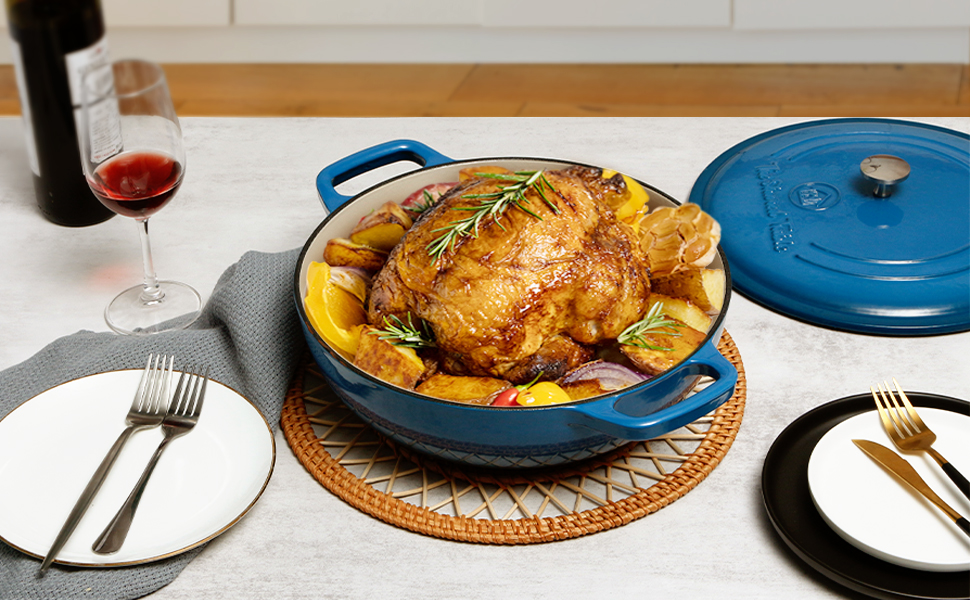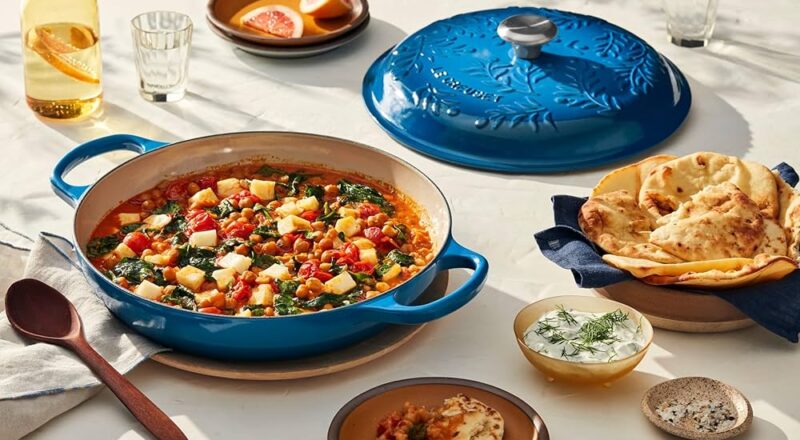If you’re a cooking enthusiast or a professional chef, the chances are high that you own a cast iron braiser. These versatile pieces of cookware are cherished for their ability to conduct heat evenly and add a unique flavor to your dishes. However, owning one comes with the responsibility of proper care and maintenance. This cast iron braiser care and maintenance guide aims to provide you with all the knowledge you need to keep your braiser in pristine condition.

Understanding Your Cast Iron Braiser
What is a Cast Iron Braiser?
A cast iron braiser is a heavyweight, versatile piece of cookware designed for braising, roasting, and even baking. Its thick bottom ensures even heat distribution, making it ideal for slow-cooking recipes. The lid helps retain moisture, making your dishes juicier and more flavorful.
Why Proper Care is Essential
Proper care is crucial for maintaining the longevity and performance of your cast iron braiser. Neglecting maintenance can lead to a damaged seasoning layer, rust, and ultimately a less effective cooking tool.
Daily Care and Cleaning
Cleaning After Each Use
Cleaning your cast iron braiser after each use is essential. Use warm water and a soft sponge to remove food particles. Avoid using soap as it can strip the seasoning. For tough stains, a paste of baking soda and water can be effective.
Drying Your Braiser
After cleaning, ensure your braiser is completely dry. You can place it on a low heat burner to evaporate any remaining moisture. This step is crucial to prevent rust.
Seasoning Your Cast Iron Braiser
What is Seasoning?
Seasoning involves applying a thin layer of oil to your braiser and heating it, which creates a natural, non-stick surface. This process is essential for protecting your cookware and enhancing its cooking performance.
How to Season Your Braiser
To season your cast iron braiser, apply a thin coat of vegetable oil to the entire surface, including the handles and lid. Place it upside down in an oven preheated to 375F (190C) for an hour. Let it cool inside the oven.
Long-Term Maintenance Tips
Preventing Rust
Rust is the enemy of cast iron. To prevent it, always keep your braiser dry and well-seasoned. Store it in a dry place with the lid off to avoid moisture buildup. For more tips on rust prevention, check out our detailed guide.
Storing Your Braiser
Store your braiser in a cool, dry place. If stacking with other cookware, place a paper towel between them to protect the surface. Avoid stacking heavy items on top to prevent damage.
Common Mistakes to Avoid
Using Soap or Dishwashers
Avoid using soap or dishwashers for cleaning as they can strip the seasoning. Stick to warm water and non-abrasive sponges.
High-Heat Cooking
While cast iron can withstand high temperatures, excessive heat can damage the seasoning. Use medium heat for best results.
Re-seasoning and Repair
When to Re-season
If you notice food sticking to the surface or see dull spots, it’s time to re-season your braiser. Regular re-seasoning is part of good maintenance.
Repairing a Damaged Braiser
If your braiser develops rust, scrub it off with steel wool and re-season. For cracks or severe damage, consult a professional for repair advice.
Enhancing Your Cooking Experience
Experiment with Recipes
Once you master the care and maintenance of your braiser, experiment with different recipes. From stews to baked goods, the possibilities are endless. Visit Lodge Cast Iron for inspiration.
Pairing with Other Cookware
Pair your braiser with other cookware like woks or casserole pots for a versatile cooking experience. Learn more about the differences between a braiser and other cookware at braiser vs casserole.
Conclusion: The Joy of Cast Iron Cooking
Caring for your cast iron braiser may seem daunting at first, but with practice, it becomes second nature. The rewards are worth the effort, as your well-maintained braiser will serve you delicious meals for years to come.

FAQ
How often should I season my cast iron braiser?
Season your braiser whenever you notice food sticking to it or after cleaning with soap.
Can I use my braiser on an induction cooktop?
Yes, cast iron is compatible with induction cooktops. Just ensure the base is flat for optimal contact.
What oils are best for seasoning?
Vegetable oil, canola oil, and flaxseed oil are excellent choices for seasoning.
This article contains affiliate links. We may earn a commission at no extra cost to you.

